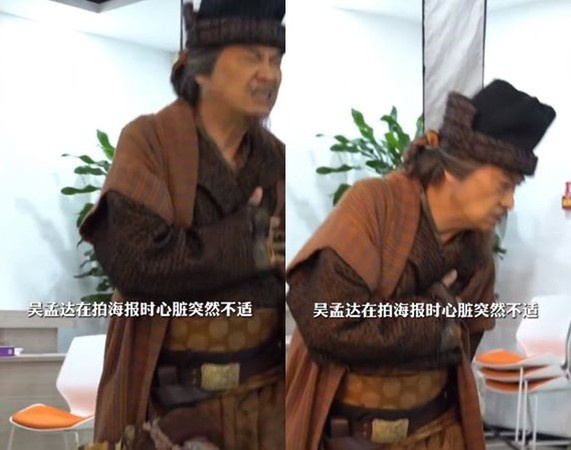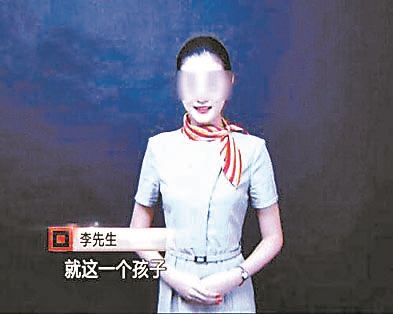Relying on China Automotive Quality Network, the first domestic automotive quality evaluation magazine "Quality Car" and China Automotive Quality Network, the largest automotive product defect information collection platform in China, the China Automotive Quality Evaluation List observes the improvement and deficiency of China’s automotive product quality from a unique perspective
It will strive to become a true third-party evaluation platform that fully represents consumer opinions
Please work with us to contribute to improving the quality of Chinese automotive products
Dongfeng Fengshen H30 CROSS
Nowadays, the concept of CROSS is not a new word for consumers, but the CROSS version of a car is more than just adding a few English letters. The Dongfeng Fengshen H30 CROSS integrates practicality into the crossover element.
The ground clearance of the CROSS version of the H30 is 172mm, which is 42mm higher than that of the ordinary version. The passability and damage resistance are greatly improved, while the repair cost is reduced. The black plastic surround is a necessity for current CROSS automotive products. The increased black plastic area of the H30 CROSS is not exaggerated, and it does not appear obtrusive when combined with the whole vehicle. To its credit, the CROSS version of the H30 is equipped with a steel guard plate at the bottom of the engine, which greatly reduces the risk of the bottom support.
The complaint information of China Automobile Quality Network shows that no owner has ever made a centralized complaint about this car, which performs well in the same class of models. As the third model of the Dongfeng Fengshen family, the H30 CROSS can clearly see the progress of Fengshen and the pursuit of quality. Such a crossover with SUV style, coupled with the price close to the people, its attractiveness to consumers will be tested in the market.
Dongfeng Nissan Shintida
The changing aesthetic of Chinese consumers has brought spring to compact cars. For example, the combination of Tiida and Yida has sold more than 750,000 cars in six years. Even if the Tiida performs well in the market, Dongfeng Nissan will never be deterred. So in late May 2011, the new Tiida was officially launched.
The new Tiida not only increased the body size, but also completely abandoned the front face design of the "predecessor". It adopted the Nissan New Sunshine-style front intake grille, which echoed the chamfered design of the front bumper, making the front face of the whole vehicle more muscular. In terms of power, in addition to continuing to use the 1.6L engine, the new Tiida is also equipped with a 1.6T turbocharged engine for the first time, and the transmission to match the engine is automatically upgraded from a 4-speed to a CVT continuously variable transmission.
On the complaint platform of China Automotive Quality Network, whether it is a new model or an old model, complaints about Tiida are rare compared with its sales. The extremely low complaint rate has made Tiida form a good reputation. Coupled with its existing market position, New Tiida will further develop young consumer groups and once again become a strong player in the domestic hatchback compact car market segment.
Audi A1
The appeal of the Audi brand in the Chinese auto market is beyond doubt. Even if its growth rate is slightly lower than that of the other two German carriages at a certain stage, it will still make competitors look up to it in absolute terms. The arrival of the A1 has opened up a new market segment for the Audi brand. The A1, known as the "first A0 luxury car in history", will become a new growth point for the Audi brand to achieve excellent market performance.
The distinctive enclosed "whirlwind line", the arched design that contrasts with the body color, and the Coupe-style large-angle inclined C-pillar design – Audi’s exclusive purist design language makes the Audi A1 look dynamic and personalized. The power combination of three TFSI gasoline engines and one TDI diesel engine becomes the carrier of Audi’s leading direct fuel injection system and turbocharging technology, perfectly balancing power and fuel economy.
As of the end of 2011, China Automotive Quality Network had not received any complaints about the Audi A1. Maybe the Audi A1, which was only launched in October 2011, is still in the actual test of the owner, but in terms of Audi’s technical strength, the A1’s performance will not disappoint.
GAC Passenger Car Trumpchi
"Qi" originated from "Shi · Daya", and it was marked as "Fuye" in "Hanshu · Lilezhi". As an independent brand that first entered the domestic mid-to-high-end car market, GAC certainly hopes that Trumpchi will be a lucky general, and will lead the way for GAC’s passenger car product line to include economical, sporty and luxury models in the future, and accelerate the coverage of B-class, A-class and other market segments.
In China, the handling of European cars, the space and interior of Japanese cars all have loyal fans in their respective fields. GAC has taken advantage of it, and this is the selling point of Trumpchi. After using the chassis of the α coefficient Romy 166 owned by Italian Fiat, Trumpchi’s handling performance is guaranteed; the spacious driving space in the car and the textured interior workmanship will make the owner feel very face; the rich configuration will give consumers a sense of value for money.
On the complaint platform of China Automotive Quality Network, the number of complaints of Trumpchi, which has been listed for a year, has remained in single digits, and there are no failure reports involving failure problems. Hundreds of Trumpchi owners rated it as 85 points. With the recognition from the owners, we can foresee that although the road is not smooth, the future of Trumpchi is bright.
Dongfeng Peugeot 508
When it comes to French Peugeot, perhaps the first reaction of Chinese consumers is its unique appearance. In fact, today’s Peugeot still exudes an artistic atmosphere, but people’s vision has changed. As Dongfeng Peugeot’s first mid-range car, the 508 must have many competitiveness including appearance in order to succeed in the mid-range car market.
Obviously, the Dongfeng Peugeot 508 is well-prepared. In terms of its appearance and interior, the French’s eclectic play has a little more Chinese-style calmness, and the spacious space brought by the long wheelbase also makes the Dongfeng Peugeot 508 a strong business atmosphere. In addition, in terms of its Info-Drive system integrated Control Unit, VTH color head-up display and other configurations, it sounded the alarm for its competitors – the original mid-range car of less than 230,000 yuan can also have rich configurations comparable to luxury cars. You know, the VTH head-up display derived from aviation technology is rare even in C-class cars.
On the complaint platform of China Automobile Quality Network, we rarely see complaints about the Dongfeng Peugeot 508. Although it has been on the market for only half a year, this performance still allows consumers to see that the French car is using real configuration and performance to illustrate a new concept: the French pursuit of art can also be used in the application of automotive technology.
Cadillac CTS
Muscular American cars have always been accompanied by comfort and luxury, especially Cadillac’s previous products. However, in recent years, Cadillac has also begun to integrate sports style, and CTS, as its entry-level model, can be regarded as the pioneering work of Cadillac’s sports style.
The 2012 Cadillac CTS currently sold in China inherits the Cadillac family’s diamond-cut rim and V-shaped design in appearance, and the UltraView full-view double-layer sunroof design covering 70% of the roof area is particularly prominent in the same class of models. At first glance, the biggest change of the 2012 model is to change the air intake grille from two horizontal to three horizontal. In terms of power, the CTS Coupe’s 3.6L engine has been re-tuned, with a maximum power of 322 horsepower, which is 11 horsepower higher than the 2010 CTS’s 3.6L engine.
The complaint information of China Automotive Quality Network shows that the number of complaints about Cadillac CTS is not large, and there are no complaints of consistency failure. In fact, Cadillac has now become synonymous with performance luxury cars, and the appearance of CTS has made consumers familiar with the models in this market more eye-catching.
FAW TOYOTA Crown
It is worth mentioning that after the birth of the Toyota Crown, the first production outside Japan chose China. In March 2005, the brand-new 12th-generation Crown was put into production at the FAW Toyota No. 2 plant in Tianjin, and then more and more Chinese consumers began to own domestic Toyota Crown.
Compared with the old crown, the new crown currently on sale not only has an increase in body size, but also has a keyless start function, a new multi-functional leather solid wood steering wheel, in-car personnel detection, driver other seat control and other luxury comfort configurations. There are still 2.5L, 3.0L and 4.3L displacements. According to the complaint information platform of China Automotive Quality Network, complaints about the crown are not outstanding compared with its domestic sales for more than 6 years, and centralized complaints have not appeared.
With the Crown, there is always a feeling of wanting to drive as long as you go out, but if you really look at the reasons for its attractiveness, you will definitely be torn in terms of configuration, space, power and safety. The Crown is like a Tai Chi master, igniting your driving enthusiasm with its unique charm in the unhurried tossing and turning. Even if you don’t know much about the Infiniti brand, you will definitely remember the Infiniti model and logo deeply, and the unique appearance is enough to kill consumers in the first place. However, although the M37’s appearance has received a lot of praise, it is not a car that does gimmicks with alternative looks.
Infiniti M37
The Infiniti M37’s direct competitor is the German troika, and the Germans’ obsession with automotive technology and rapid application have become the biggest obstacles on the road to expanding the M37’s territory. Fortunately, the best-selling M37 in North America is not stingy. It has a dizzying array of safety systems, including intelligent cruise, lane departure correction, distance control, blind spot warning, and side collision correction systems. In addition, when the vehicle detects a rear-end collision hazard, the system will issue an audible and visual alarm, and at the same time automatically lift the throttle up, automatically collect the oil and prompt the driver to brake and slow down. If the driver fails to respond, the M37 can automatically brake at a critical moment.
On the complaint platform of China Automotive Quality Network, there are few complaints about Infiniti’s models, and no complaints mention the M37. In terms of the design language released, the M37 is a unique model. Although it is a niche in China, with the improvement of Infiniti’s branding impression and the formation of consumer reputation, its strength cannot be underestimated.
Jaguar XJ
Since its inception in 1968, Jaguar’s XJ series has become a symbol of luxury in every era with its trademark smooth lines and dynamic performance. The world-renowned Motor magazine once described the birth of the Jaguar XJ series as follows: This is the unique status of Jaguar, both as a symbol of status and as a model of outstanding automotive engineering. Each new model launch becomes a major social event and attracts car enthusiasts around the world.
In 2009, the new Jaguar XJ was unveiled and soon won numerous awards around the world for its revolutionary design. The elegant design features make the new Jaguar XJ more eye-catching and dynamic, and the details of the interior space are always warm, elegant and beautiful. Three advanced engines offer exceptional performance, and the enhanced ZF 6-speed automatic transmission can be changed like lightning, maximizing performance and fuel efficiency. The adaptive dynamic system can analyze the speed, direction and body movement of the Jaguar XJ at 500 times per second, and can adjust the suspension system with electronic shock absorbers. In the field of safety, the Jaguar XJ body is made of aluminum and magnesium, which is very strong. In addition to the two front airbags, the XJ also features side airbags on the outside of the seats, as well as side air curtains on the windows.
On the complaint platform of China Automotive Quality Network, we found no complaints about the Jaguar XJ model, which once again proves the outstanding quality of this luxury sedan with British style.
Chery Tiggo
As the first self-owned brand SUV in China, Chery Tiggo has maintained a leading sales position in the market since its launch in 2005, relying on its globally popular European design and durable and reliable performance. It has become a benchmark for many similar SUVs. According to statistics, Tiggo has successfully landed in more than 60 countries and regions around the world, becoming a true "Made in China, Global Car". In addition, China’s first export-free model and more than 50 certifications such as the European Union WVTA have given Tiggo an excellent quality brand.
In addition to having a high cost performance, Chery Tiggo’s unique and fashionable appearance, rich product line and configuration, car-like comfort and handling, and all-round safety considerations have a lot to do with it. Chery Tiggo’s stylish appearance is very pleasing. In terms of internal configuration, there are not only electric heated seats, electric sunroof, but also multi-functional internal rearview mirrors with air pressure altitude and compass display, allowing drivers to easily check the road conditions during driving. In terms of power matching, Tiggo has a variety of configurations, including 1.6L naturally aspirated, 1.6L naturally aspirated with DVVT technology, 1.6L mechanical supercharged, 1.8L naturally aspirated and 2.0L naturally aspirated engines to choose from. Among them, the 1.6L DVVT model was launched in 2011 and has continuous variable intake and exhaust timing technology, which has a certain improvement in maximum power and maximum torque compared to the old 1.6L engine.
On the complaint platform of China Automotive Quality Network, we found that only a very small number of consumers had complained about Chery Tiggo, and there were no consistency issues, which also gave us more confidence in the future market performance of this model.
Shanghai Volkswagen Tiguan
As the first SUV model of Shanghai Volkswagen and the first domestic German SUV model, Shanghai Volkswagen Tiguan has not only maintained the exquisite German craftsmanship and excellent safety quality of the prototype car, but also carried out localization transformations such as body lengthening, appearance improvement, and optimization and adjustment. From appearance to function, it has changed compared with imported cars, making it more suitable for the personalized needs of domestic consumers.
In terms of appearance, Tiguan has the latest dynamic design, with more emphasis on concise lines and perfect body proportions, cleverly combining power and elegance. Compared with the visible shape, those invisible inner qualities are more impressive. Backed by Shanghai Volkswagen’s exquisite car craftsmanship and quality and safety assurance, Tiguan combines forward-looking design, fine workmanship, excellent power handling and safety performance to successfully set a new benchmark for urban SUVs.
On the complaint platform of China Automotive Quality Network, we found that consumers’ complaints against the Shanghai Volkswagen Tiguan were only in the single digits, and there was no consistency problem. In our previous "100 Owners Evaluate New Cars" evaluation, the Shanghai Volkswagen Tiguan obtained 89 points of high owner satisfaction evaluation with super comprehensive strength, and 96.43% of owners highly recognized the reliability of the Tiguan. In addition, in the "43 Mainstream SUV Reliability Survey Report" released by "Quality Car" in 2011, the Tiguan ranked seventh in the price range of 100,000 to 250,000 yuan, which shows the excellent characteristics of a good quality car.
BMW X5
The X5, BMW’s first four-wheel drive vehicle, was launched in the United States in late 1999 and has been a huge success in the SUV market, becoming the leader in luxury SUVs. Currently, BMW’s 2012 X5 has been launched.
BMW’s designers are always good at using the language of lines to give a certain character to the model, and the new BMW X5 looks "powerful" and domineering under their tuning. The interior of the X5 maintains the traditional style of BMW very well, and everything from the dashboard to the center console is familiar, reflecting the BMW’s consistent sense of quality. Whether it is the inline 6-cylinder 3.0L turbo engine with single-turbo twin tubes or the 4.4L V8 twin-turbo engine, the extraordinary power of the new X5 has been confirmed. In addition, the BMW X5 has not only proved to be the safest SUV, but also the best-performing car ever evaluated by the Insurance Institute for Highway Safety. Crash tests have confirmed that the frame of the BMW X5 will not bend in a crash, and the front, rear, and sides of the vehicle have also been specially strengthened to provide effective protection for drivers and passengers.
On the complaint platform of China Automotive Quality Network, we found that only a very small number of owners have complained about the BMW X5, but none of them are failures. In the "43 Mainstream SUV Reliability Survey Report" released by "Quality Car" in 2011, the BMW X5 ranked fourth among all 43 surveyed models, and received 91 points of satisfaction from owners, with an excellent consumer reputation.
JAC Ruifeng
Since its listing in 2002, Jianghuai Ruifeng has embarked on the development and exploration of its own brand MPV from scratch in less than a decade of development, and has created miracles along the way to maintain a strong sales momentum. Jianghuai Ruifeng is also known as "the most complete variety of MPV", especially the launch of high-end models "Hechang", which has realized a comprehensive coverage from high-end business to practical economy, from gasoline engines to diesel engines, from long axles to short axles, to meet all levels of the MPV market, bringing personalized model choices to various consumer groups.
The shape of the Ruifeng is a typical business style. The design of the middle row seats is very user-friendly, which can slide, fold, lay flat, and even rotate 180 degrees. The space is very wide. In addition, the seat cushions of the rear seats can be lifted. If the rear seats are pushed forward, a large storage space will be formed behind the car, which is very convenient for traveling. The Ruifeng engine is currently divided into 2.0L, 2.4L and 2.8L. The maximum power of the 2.0L four-cylinder 16-valve engine is 100kW/6000rpm, the maximum torque is 190N · m/4000~ 4500rpm, and it is equipped with a manual 5-speed gearbox. The fuel economy can be well improved, which can fully meet the various needs of the family.
On the complaint platform of China Automotive Quality Network, we found that the number of consumer complaints against Jianghuai Ruifeng was only in the single digits, and there were no consistency problems, which also largely indicates the high-quality reputation behind the popularity of Jianghuai Ruifeng.
FAW Mazda Mazda 8
On December 15, 2010, FAW Mazda Automobile Sales Co., Ltd. announced that its first large-scale MPV Mazda 8 was officially launched nationwide. The Mazda 8 respects luxurious business performance, atmospheric and stylish overall design and top-level thoughtful safety protection. It has created a second-row VIP VIP area in an all-round way, leading the same class of models in terms of space, comfort and luxury equipment. It is particularly worth mentioning that the two wide 590mm and largest independent seats in the same class in the second row can ensure that the FAW Mazda 8 has the best ride comfort.
In terms of interiors, the FAW Mazda 8 has a technological and advanced interior design, including an advanced blue theater lighting system, a three-dimensional self-luminous instrument panel, and a multi-function steering wheel with audio control keys. In terms of safety, the manufacturer also equipped the FAW Mazda 8 with a number of configurations to ensure that it better serves drivers and passengers in terms of active and passive safety.
On the complaint platform of China Automotive Quality Network, we did not find any quality complaints about the FAW Mazda 8. Obviously, as the first large-scale MPV under FAW Mazda, the Mazda 8 has been painstakingly built in quality and has been given high expectations in quality. These efforts have also been well verified in the market.
Toyota Xiaobawang Wish
In Japan, the Toyota Xiaobawang has a more affable name, "Wish", but the domestic "Xiaobawang" name is significantly more domineering. Toyota Xiaobawang was first launched in Japan in January 2003, and its unique market positioning and excellent driving performance are the main reasons why it is favored by consumers.
The Blaster WISH adopts a bullet-shaped front design style, and the body size looks more compact and sportier. The entire exterior shape is very atmospheric and stretched, highlighting the unique elegant temperament. In terms of interior, as a purely imported model, it perfectly inherits Toyota’s consistent fine workmanship in the details, and every seam in the car is uniform and delicate, which can withstand scrutiny. The body size of the Blaster WISH is 4625mm long/1720mm wide/1590mm high, providing a 7-seat version, even for a family of seven, it can be easily ridden. In addition, while having strong power performance, it has outstanding fuel economy performance, with a fuel consumption of only 7.3L per hundred kilometers.
In the complaint platform of China Automotive Quality Network, we did not find any quality complaints about Toyota Xiaobawang WISH, which is excellent in the same class of models, and also makes us believe that this model with spacious and changeable space, comfortable and friendly interior, and excellent fuel economy will definitely be liked by more car owners in the future.
FAW-Volkswagen New Maiteng
As the long-wheelbase version of the seventh-generation B-Class of the Volkswagen brand, the new Maiteng brings together the car-making philosophy and brand culture accumulated by Volkswagen’s 38 years of B-Class development, with the most advanced automotive technology and the most stringent manufacturing standards in this class of models. As Hu Yong, general manager of FAW-Volkswagen Sales Co., Ltd., said: "The launch of the new Maiteng is not only of great strategic significance to FAW-Volkswagen, but also has a demonstration and promotion effect for the entire Chinese B-Class market. It is manufactured according to the production standards of C-Class cars, and whether it is the adoption of innovative technology or the degree of luxury, it will reach an unprecedented height in the segment."
In order to enhance the sense of luxury, the new Maiteng applies the design language of Volkswagen’s high-end models and draws on the design elements of Volkswagen’s top luxury sedan Phaeton. In terms of comfort, the new Maiteng has a driving experience comparable to that of a C-class car. At the beginning of the design, the new Maiteng has been natively lengthened, with an increase of 100mm in wheelbase and knee space, and a significant increase in occupant space. In particular, the rear head space reaches 961mm, and the knee space is 57mm longer than the previous generation. In addition, the new Maiteng chassis has a breakthrough innovation, and in terms of safety, it has also comprehensively refreshed the domestic B-class car standard, with up to 79 safety configurations.
On the complaint platform of China Automotive Quality Network, we found that compared with other new models of the same level, the complaint ratio of the new Maiteng is well controlled in a small range, which is definitely a good incentive for it, which sold more than 7,500 units in the first month of listing. With the gradual increase in production capacity, the new Maiteng will have a greater advantage in the German car consumption boom.
Shanghai GM Chevrolet Aveo
Chevrolet Aiweiou was born on GM’s latest and most advanced Gamma II small car platform, which has a rather excellent suspension system configuration. It has given birth to Opel Corsa and α coefficient Romeo Mito, which are famous in Europe. Now, Aiweiou has come to China, its configuration has surpassed the same level, and its safety collision has reached the European five-star standard. Its dynamic and fashionable sports style is deeply loved by many young people.
In addition to its highly personalized exterior design, Aiweiou has reached or even exceeded the standards of its class in terms of body size, interior space, power technology, and technological equipment: the combination of 1.6L Ecotec DVVT engine and 6-speed manual transmission is rare in A0-class cars; the introduction of the Anji Star system, which has not yet been fully popularized in mid-to-high-end cars, can be easily controlled with a mobile APP; the highest safety certification of E-NCAP and IIHS confirms Aiweiou’s high safety standards at the beginning of the design; exceeding the body size of the same class of models also brings more spacious space.
Since its launch in May 2011, Chevrolet Aveo has gained high market recognition for its leapfrog advantages in performance, safety, technology and space, and has also accumulated a high reputation for product quality satisfaction. On the complaint platform of China Automotive Quality Network, we have not found any quality complaints about the Chevrolet Aveo automatic transmission model, which is particularly good in the same class of models, and also gives us confidence in the future market prospects of this model.
TOYOTO GAC TOYOTA
Reliable quality brand
In Guangzhou’s Nansha district, the geometric heart of China’s dynamic Pearl River Delta, GAC Toyota has been working hard for five years, allowing Toyota’s lean production methods to take root in an innovation base and helping GAC Toyota become a business card for regional economic development.
The last month of 2011 was more like a prelude to a big drama for GAC Toyota, the protagonist of which was the seventh-generation Camry. As GAC Toyota’s first sedan, the Camry has sold more than 700,000 cars since it was officially launched in May 2006. Some people may disagree: "Isn’t the so-called sales myth of GAC Toyota the best-selling Camry?" In fact, if a product can make a car company set a record for the fastest production climb, the mid-range car market will not be so full of smoke.
In the increasingly rich Guangfeng product line, in addition to the Camry and Camry hybrid, the Highlander, Yaris, E’Z Yizhi and other models are all boosters of GAC Toyota’s "one model a year".
On the complaint platform of China Automotive Quality Network, the number of complaints of Highlander, Yaris and Yizhi remained in single digits, while the number of complaints of the best-selling Camry in the first 10 months of 2011 was also very different from its sales. Direct feedback from end point users not only brought word-of-mouth effect to GAC Toyota, but also made it a veritable quality and reliable brand.
Camry Camry
GAC Toyota’s first sedan is the Camry. It is one of the largest-selling mid-to-high-end sedans in the world, with a cumulative sales volume of more than 10 million vehicles worldwide. In the Chinese market, the Camry is known as the "evergreen tree" of the mid-to-high-end car market, and has the title of "champion model". The seventh-generation Camry currently on sale in the Chinese market is divided into three major car series: flagship, sports and hybrid. The body is derived from the aerodynamic design of Toyota F1 racing technology. The drag coefficient is only 0.28, which is the best performance in the same class of models. The power combination of 2.5L 5AR-FE engine and 6-speed automatic transmission is used on the large-displacement model, achieving a perfect balance of power and fuel economy.
Yaris
Yaris is GAC Toyota’s second product to the market. As one of Toyota’s global strategic models, Yaris has been selling well in the European hatchback segment since it was launched in 1999. Yaris began to compete in the Chinese auto market in 2008 and received a 5-star review from C-NCAP crash tests that year, becoming the first model in its class to receive a five-star review. There are currently 7 Yaris models on sale in 2011, including two 1.3L models and five 1.6L. The newly developed 1.6L dual VVT-i engine achieves excellent power performance at medium and low speeds, with power performance comparable to mid-range cars, acceleration performance beyond existing compact car standards and stability at high speeds.
HIGHLANDER Highlander
The Highlander model went on sale in mid-2009, with a market share of more than 50% in the domestic large and medium-sized SUV market. As the first large and medium-sized luxury city SUV built by GAC Toyota, the Highlander ranks among the best in its class in terms of appearance, interior design and power performance. Its spacious and flexible space, luxurious and advanced configuration, and excellent driving and riding performance all implement the original intention of the Highlander – "strong, flexible and free". The Highlander currently on sale has two power options: 3.5L V6 and 2.7L. In addition, the GOA body, ABS anti-lock brake system, BA brake assist system, active safety headrest, and 7 airbags helped it to obtain a 5-star C-NCAP safety collision evaluation.
E’Z Yizhi
The Yizhi model was put into production and launched in June 2011. It was developed based on the Corolla platform and is the first FUV model in China to integrate the advantages of "sedan, MPV and SUV". The Yizhi of "IKEA IKEA" can well meet the new demand of domestic consumers for utility vehicles and create a new market segment. Yizhi has three displacement models of 1.6L, 1.8L and 2.0L, with a total of 6 models, of which 1.8L has a 5-seat version and a 7-seat version respectively. The highlights are the fashionable and dynamic appearance and high-quality interior, spacious and changeable space, abundant power and excellent fuel economy, as well as top-class safety performance.
LEXUS
Reliable quality brand
People excel when the process is clearly defined.
For a car brand, the goal of having more logos move on the road is understandable, but how to achieve such a picture is a test of the car brand itself.
Lexus has used more than 20 years to prove that its increasingly excellent products and services are enough to compete with its competitors’ century-old accumulation. In the North American market, Lexus, which was launched in 1989, first topped the list of best-selling luxury cars in North America in 2000. Since that year, Lexus has never left this position.
In the Chinese market, the turn from "Lexus" to "Lexus" was once worried about affecting its brand appeal. Lexus once again spoke with products and services. Lexus owners found that the change of the brand name brought about the extension of quality and connotation. On the complaint platform of China Automotive Quality Network, in sharp contrast to Lexus’ rising sales, its extremely low complaint rate formed a word-of-mouth from the end point of consumption.
From 1983, when Toyota executives held a secret meeting and decided to develop Lexus, to the fact that more and more models of Lexus are now on the road in China, Lexus has brought to the Chinese market not only several automobile products, but also a signal that automobile companies can also be members of the "service industry".
When the pursuit of perfection becomes a habit, Lexus’ unswerving belief has the most suitable carrier.
IS series
It is the smallest sports sedan under Lexus, and is mainly sold in the mainland market with the IS250 and IS250C. The front-rear drive layout of this series, with an independent double-fork front suspension with lateral stabilizers, ensures sensitive steering, achieving the ideal that engineers have been seeking in motorsport. While retaining comfort, it provides outstanding corner stability and driving pleasure.
ES series
In the Lexus family, it is positioned as a mid-sized executive class sedan, including the ES350 and ES240 models. The ES series adopts a front-facing front-drive layout. The front-drive design makes the floor without the rear-drive car in the middle of the rear row. Together with the wide wheel base, it ensures a spacious interior space, especially ample legroom, suitable for customers who are more commercial. The ES240 has a rich configuration of leading cars in its class, setting a new value benchmark for small-displacement luxury cars.
GS series
As a high-performance luxury coupe, the GS series adopts a rear-drive layout, and the Dynamic Integrated Management System (VDIM) ensures the stability and sporty shape of the vehicle. By shortening the rear overhang and increasing the wheelbase, the GS can have a spacious interior like a front-wheel drive car. The GS series provides a level of tranquility that is rare in its class while ensuring sportiness.
LS series
The LS series is a representative of the Lexus family and has played an important role in the success of Japanese high-end car brands. The interior of the LS series shows the rich connotation of traditional aesthetic craftsmanship, and perfectly applies ergonomic technology to create the ultimate experience of luxury, safety and tranquility. Equipped with the world’s first collision safety system (PCS) and leading SRS airbags, it maximizes the safety of drivers and passengers, and five-star safety stands out among the crowd.
RX Series
Positioned as an urban leisure SUV, there are mainly models such as RX270 and RX350. The RX series adopts four-wheel independent suspension, which mainly focuses on road driving performance, providing entry-level off-road capability and wide interior space. The chassis has been redesigned for higher stiffness. The entire chassis is equipped with large guards, achieving the leading drag coefficient in the class. Power output is efficient and has excellent fuel economy.
GX series
At present, there is a GX460 model in the series, which adopts a non-load-bearing body. The suspension system is a front independent double-fork suspension with a lateral stabilizer bar, a rear four-link electronically regulated air suspension system, and a differential lock. It has strong off-road performance and is called a "luxury SUV with all road conditions". The GX460 adds forward-looking intelligent technologies such as electronic dynamic suspension system (KDSS), multi-terrain monitoring system, blind spot monitoring system, and automatic hill climbing control system (Crawl Control) to improve driving safety.
LX Series
It is Lexus’ full-size top-of-the-line SUV, renowned worldwide for its outstanding off-road capabilities and luxurious and comfortable interior space. The LX570 is not only equipped with a 5.7-liter V8 engine, but also equipped with the world’s first four-wheel active suspension altitude control system and adaptive adjustable suspension system. While ensuring off-road driving performance, it still provides Lexus’ usual ride comfort experience, making it the most suitable "off-road flagship" among luxury SUVs.
CT Series
The CT200h is the latest small-displacement gasoline-electric hybrid model from Lexus. The official fuel consumption for 100 kilometers is only 4.6 liters. The unique ECVT electronic continuously variable transmission system of the gasoline-electric hybrid model brings a smoother and more comfortable driving experience. Its luxurious interior and workmanship, excellent fuel economy and battery life, especially the affordable price… are enough to impress increasingly discerning consumers.
Lexus
Oil-electric hybrid
Lexus has been dedicated to the development of gasoline-electric hybrid technology for nearly 20 years. It has a number of international patented technologies and has sold 300,000 units worldwide. At present, it has launched 4 gasoline-electric hybrid models in China, LS600hL, GS450h, RX450h, CT200h, and its rich product line makes it stand out among the crowd. Lexus’ mature gasoline-electric hybrid technology not only significantly reduces fuel consumption and effectively reduces harmful gas emissions, but also brings more exciting power and acceleration performance and a quiet driving experience.
BMW
Reliable quality brand
Before 1992, the three-letter combination of BMW was translated into "Baer". At that time, although BMW had become famous for its luxury car products, the audience did not include Chinese consumers.
This situation began to improve after BMW was called "BMW", and BMW’s models were gradually introduced to the Chinese market with the establishment of BMW’s Beijing representative office in 1994.
Today, BMW has become one of the German troika in China’s luxury car market. Even when the Chinese car market was in a "cold spring", BMW still completed sales for the whole of last year in the first nine months.
A reliable brand needs to have the dual support of products and services. The complaints received by China Automotive Quality Network about BMW’s models are in the single digits, and there is no embarrassment that many brands have encountered with product sales and complaints.
In addition, in the implementation of the "BMW Joy" brand strategy, car owners also experienced the efficiency, transparency and care from BMW in the process of repairing and maintaining their vehicles.
BMW’s executives in China are well versed in China’s national conditions. From BMW’s recent rebranding, we seem to see that the low profile of the East is being integrated into BMW’s blood, while the increasing number of dealers and customers across the country has opened a new journey for BMW in China.
1 series
Although the 1 Series is the most entry-level model in the BMW brand, BMW is not trying to simplify this model. The traditional vertical inline engine, the same rear-drive method as always, the carefully adjusted front and rear axle weights and the uncompromising sports chassis, the little brother of the BMW family has concentrated the essence in the body of less than 4.3m.
3 series
It is BMW’s most successful and largest-selling car series. The capable and stretched body shape can already be classified as a classic design. The interior space is absolutely sufficient, and the front engine and rear wheel drive are its true essence. At present, some 3 Series cars have been domestically produced, which has lowered the threshold for consumers to start to a certain extent.
5 series
The style of the 5 Series is positioned between the 3 Series and the 7 Series, fusing the functions of dynamic, elegant and high-end commercial sedans. The 2012 BMW 5 Series has been launched, with a total of 8 models, further improving the comfort. At present, the 5 Series has been domestically produced, and the domestically produced 5 Series has a longer wheelbase, and its rear space is luxurious.
6 series
In the BMW family, the 6 Series is relatively unfamiliar to Chinese consumers. It was born in 1976, discontinued in 1989, and returned 14 years later to join the large luxury sports car market again. The 6 Series maintains the typical dynamic style of the BMW coupe. To distinguish it from other models, the headlights, engine cover, water tank grille and forward trend have been completely redesigned.
7 series
The 7 Series is BMW’s top-of-the-line luxury sedan series, a flagship model, only in sedan form, and only produced in Germany. The new 7 Series is dynamic but maintains the elegance and unique style to the greatest extent possible, and its innovative iDrive system, 10.2-inch display, high-definition images and more make driving a pleasure. There is also a hybrid version of the series.
X series
From the naming rules of BMW’s models, the X stands for the four-wheel drive version, which can also be regarded as BMW’s specific SUV series. Since the X5 came out in 1995, consumers have seen the release of the X3, X1 and X6 (including the hybrid version) one after another. According to BMW’s latest plan, the X4 will meet consumers in 2013.
Z4
The most stylish design of the Z4, a convertible owned by BMW, comes from its side face. The slightly exaggerated engine compartment makes the cab visually almost reach the rear of the car, which also gives the Z4 a more retro charm. The new BMW Z4 uses a 3.0L twin-turbo six-cylinder engine with a seven-speed dual-clutch automatic transmission, and the maximum output power is 335 horsepower.
M series
On BMW’s official website, there is a line of words, M = motorsport. In the BMW family, the M series is the symbol of high-performance sports models, and those BMW cars painted with "red-violet-blue" colors have always been the stars of major touring car competitions. At present, consumers can buy M3, M5, M6, Z4M, X5M, X6M and other models.
Shanghai Volkswagen
Automotive after-sales services award
In 2011, Shanghai Volkswagen became a well-deserved leader in the Chinese auto market with continued strong market sales momentum. At the same time, Shanghai Volkswagen also achieved excellent results in the construction of after-sales service satisfaction. On the complaint platform of China Automotive Quality Network, we found that the overall complaint rate of many best-selling models under Shanghai Volkswagen was controlled in a very small range. More importantly, in the face of complaints from car owners, Shanghai Volkswagen’s after-sales services attitude has been relatively positive. In our return visits to complaining car owners, car owners generally reported that they communicated smoothly with manufacturers and 4S stores and were able to get satisfactory maintenance results.
As the earliest pioneer in China’s car market, Shanghai Volkswagen’s products are adhering to the Volkswagen Group’s rigorous control of quality and excellence in vehicle construction, and have won the trust of consumers with perfect after-sales services. Shanghai Volkswagen has been committed to providing users with high-quality and safe and reliable products and professional services, and strives to continuously exceed.
Shanghai Volkswagen’s service network has been built over decades, and has now formed a network layout dominated by "four-in-one" franchised dealers, supplemented by authorized direct-operated stores, and supplemented by other network forms. It has become the most extensive, competitive and executive management system in China. The "TECHCARE Volkswagen Care" it advocates truly reflects the ubiquitous care for users. In the words of Ye Yongming, executive manager of sales and marketing at Shanghai Volkswagen, "It is necessary to upgrade from focusing on cars to actively serving people and cars. Ultimately, service will also become an important brand of Shanghai Volkswagen."
1. "Four Seasons Care" free testing service
"Four Seasons Care" is an important part of Shanghai Volkswagen’s marketing service brand "TECHCAR Volkswagen Care". Under its guidance, Shanghai Volkswagen has joined hands with dealers around the country to plan "Four Seasons Care" activities with different themes, go out of the repair station, and truly deliver professional service and sincere smiles to customers. "Happy Spring", "Happy Summer", "Colorful Holidays", "Burning Love and Warm Winter", a series of special care activities of love thoughtfully provide owners with free inspections of various seasonal vehicles. As long as you are a Shanghai Volkswagen user (excluding operating vehicles), regardless of model or region, you can enjoy 12 professional inspections including cooling system, power steering system, braking system, etc. at Shanghai Volkswagen’s franchised dealers/special repair stations across the country for free.
2. Technical center station support
Shanghai Volkswagen has strengthened the construction of the network of technical center stations. The network of Shanghai Volkswagen technical center stations built by dealers has better solved the needs of customers for professional and timely maintenance, and successfully established a three-level technical support model of regional technical mutual assistance, cross-regional technical assistance, and headquarters technical support. Therefore, Shanghai Volkswagen can ensure that in any corner of China, Shanghai Volkswagen’s after-sales services department can send the best technical experts to solve problems for customers when users need them. At the same time, the 24-hour assistance service network established by Shanghai Volkswagen in 2005 has seen an increase in members, greatly expanding the coverage of network assistance services and improving the timeliness of assistance.
3. Expert lecture hall
Shanghai Volkswagen makes full use of the expert technical advantages of elite team members, and provides the most authoritative guidance for car owners in various places through a number of caring activities such as user classrooms, expert sitting in the classroom, and on-site diagnosis. Shanghai Volkswagen has launched a 1-minute radio program "Car Love Classroom" in various places, and has broadcast a total of 42 topics of car maintenance, car use, car protection, and "Driving Misunderstandings" and "Novice on the Road" for customers for a total of 107 days. In order to gain a deeper understanding of customer needs, Shanghai Volkswagen has also changed the quarterly dealer service customer satisfaction survey to monthly. At the same time, it has also launched "Weekend Care" zero-distance service among network members, delivering professional testing and services to customers, and organizing "Care for Old Friends" service sessions to provide preferential services for regular customers.
4. Technical competition
As early as 2002, Shanghai Volkswagen took the lead in holding the first professional maintenance technology competition in China, which set off the enthusiasm of technical competition in the company’s maintenance service network. Shanghai Volkswagen continued this fine tradition, and thus conducted full training for employees in the two key positions of service reception and maintenance technology in the after-sales services network, and formed a good service technology competition landscape in the service network. At the same time, Shanghai Volkswagen also strengthened the technical training of service network members, improved the overall technical level of network members, effectively improved the service quality of the entire network, and enriched the "attentive and more professional" brand connotation of "ECHCARE Volkswagen Care".
GAC HONDA
Automotive Quality Manager Award
High depth of field
GAC Toyota Automobile Co., Ltd.
Deputy General Manager and Deputy Factory Director
1989.06~ 1998.06
Guangzhou Peugeot Automobile Company technician, head teacher,
Stamping workshop director, assembly workshop director
1998.07~ 2004.04
Chief of General Assembly Section, Guangqi Honda Automobile Co., Ltd.
2004.04~ 2004.09
Guangzhou automobile group company GT project team
2004.09~ 2007.11
Director of General Management Department, GAC Toyota Motor Co., Ltd
2007.07 to now
GAC Toyota Motor Co., Ltd., Deputy General Manager and Deputy Factory Director
From a member of the technical team of Guangzhou Peugeot Automobile Company in 1989, to the chief of the general assembly department of Guangzhou Automobile Honda Automobile Co., Ltd. in 1998, and then to the director of the general management department, deputy general manager and deputy factory director of Guangzhou Automobile Toyota after 2004, Gao Jingshen started with technology, and then personally participated in and led the team to develop and enrich the unique quality management method of Guangzhou Automobile Toyota, so that the models of Guangzhou Automobile Toyota generally have a good reputation for quality.
In the past few years, GAC Toyota has always felt vibrant and rigorous. Its models have left a deep impression on us in terms of sales and quality, such as the Camry, the ever-winning general in the mid-to-high-end car market, Yaris, an outstanding representative of boutique cars, or Highlander, which performs well in the SUV market. The 2011 complaint statistics from China Automotive Quality Network show that the GAC Toyota models have a very low overall complaint rate among all complaint models. Highlander, Yaris, and Yizhi have complaints in single digits. The best-selling Camry has excellent quality performance.
Although 8 of the 19 production lines in the GAC Toyota welding workshop are fully automated, 278 robots are responsible for the operation, and the degree of automation is as high as 58%. But to make a good car, in addition to advanced manufacturing equipment and technology, it also requires a complete and reliable quality management system. GAC Toyota has always adhered to the Toyota lean production method in every aspect of production and operation. It is precisely because of Toyota-style management and Toyota-style intensive farming that Toyota-style quality fruits have been produced. The "three no principles" of Toyota’s production method are very well-known in the corporate world, that is, any workstation "does not accept, does not manufacture, and does not deliver" products with questionable quality. GAC Toyota adheres to all the principles of the Toyota Production Method while also innovating.
At GAC Toyota, workers’ transformation of the production line plays a very important role in ensuring quality and improving efficiency. On the premise that the core of "lean" and "accurate" has not changed, all the improvements and innovations of GAC Toyota are to strengthen the quality of the car. At GAC Toyota, quality inspection and assessment are put together. New workers need to be trained for one month to half a year before they can officially start work, and the IQS quality evaluation on the production line can finally confirm small quality abnormalities. In GAC Toyota’s production workshop, there are footprints at every intersection. This is to remind everyone to take out their hands where there are footprints to see if there are cars on the left, right, front and back. In addition to turning their heads to look, they must also point their hands to ensure the safety of people. In GAC Toyota’s final assembly workshop, people can also see that the shelves used to place the parts storage boxes are uniformly limited to a height of 1.5 meters. On the one hand, this is highly suitable for the vast majority of ordinary height employees; more importantly, the uniform height limit can help workers detect abnormal conditions in time.
2011 was an important turning point for Toyota, and the "return to the origin" strategy was seriously implemented. As an important member of Toyota’s China Quality Management Committee, GAC Toyota made great contributions to Toyota’s global quality reputation recovery. Under the attention of Gao Jingshen and the leadership of the Economic and Management Committee, Guangfeng is walking on the bright road of quality progress.
GAC HONDA
Consumer Responsibility Contribution Award
GAC Honda, which has topped the J.D. Power China after-sales services satisfaction survey for three consecutive years (2009-2011), has shown its unique corporate responsibility with responsible actions for many years. In 2011, GAC Honda recalled a total of 1139,905 vehicles throughout the year, accounting for 62.7% of the total number of passenger car recalls in the year, continuing to interpret its recall attitude and philosophy on the Chinese automotive stage. Data from China Auto Quality also shows that the overall complaint rate of GAC’s models throughout the year is low, while the overall satisfaction of complaining owners is quite high.
Yao Yiming, executive deputy general manager of GAC Honda, once said that GAC Honda has always pursued quality growth, not only to achieve sales improvement, but also to achieve a leading position in various fields such as quality and service. In October 2011, in J.D. Power’s "2011 China New Car Quality Survey (IQS) Report", GAC Honda maintained a high standard as always, with its Fit (FIT), Accord (ACCORD), and Odyssey (Odyssey) ranking among the top three in the market segment. Such results fully demonstrate that GAC Honda’s product quality has withstood the test of the market and has been recognized by consumers.
As a pioneer and leader in the field of after-sales services in China, GAC Honda has also led the development and improvement of the service level of the entire industry for many years. GAC Honda’s unremitting pursuit and excellence in customer satisfaction and product quality have set a benchmark for the domestic automotive industry. GAC Honda is the first domestic automobile manufacturer to introduce after-sales services as the center, integrating vehicle sales, after-sales services, parts supply, and information feedback. Over the years, GAC Honda has always adhered to the construction and improvement of the after-sales services management system around "improving customer satisfaction", with the service slogan of "pro, speed, accuracy and security", and the goal of providing services that exceed customer expectations. Through the development of a variety of service projects, it has continuously improved its own service system, continuously improved the service capabilities and service levels of special sales and service stores, and is committed to providing users with high-quality and satisfactory services.
1. Excellent after-sales services satisfaction
On July 28, 2011, J.D. Power Asia Pacific officially released the 2011 China after-sales services satisfaction index research (CSI) report. In this report, GAC Honda exceeded the industry average score of 63 points (896 points), and performed well in the three measurement factors of "service start", "service consultant" and "service facilities", and won the first place in China’s after-sales services satisfaction in 2011. At the same time, this is also the second time that GAC Honda has ranked among the best in J.D. Power’s China after-sales services satisfaction survey after 2009 and 2010, which fully reflects consumers’ trust and recognition of GAC Honda’s excellent service.
2. Excellent owner recognition
On the consumer complaint platform of China Automotive Quality Network, we were pleasantly surprised to find that although many of its models have high market sales, the overall number of complaints has remained low. Moreover, when dealing with the quality problems of complaining owners, GAC Honda has also maintained a positive solution attitude and achieved high satisfaction from owners. In November 2011, in the "100 Owners Evaluating New Cars" in-depth survey conducted by "Quality Car", the GAC Honda Concept S1 received an 87-point owner satisfaction score with excellent comprehensive performance. Nearly 90% of the owners highly recognized the reliability performance of the Concept S1, and nearly 70% of the owners selected after-sales services in the "What you are most satisfied with this car" option, which fully demonstrated the deep skills of GAC Honda in quality control, especially after-sales services.
3. Responsible recall actions
Recall is an attitude, but also a concept. With the expansion of China’s car ownership, recalls have become the norm, which is a manifestation of car manufacturers’ responsibility to users. In 2011, GAC Honda recalled a total of 1139905 vehicles throughout the year, involving Accord, Odyssey, Fit, Fenfan, Sidi and other models, accounting for 62.7% of the total number of passenger car recalls in the year. Among them, the recall of more than 750,000 vehicles for Accord and Odyssey models on August 8, 2011 was the largest single recall since our country began to implement the defective car product management system in 2004. This move is destined to leave an indelible mark on the history of Chinese car recalls. In addition, if we delve into the specific problems that caused the recall, we will also find that some of these problems were found in multiple experiments, and some were problems with foreign models. However, in a responsible attitude towards consumers, GAC Honda has taken the initiative to recall, thus providing owners with better products and services.
"Product Reliability Report" January 2012 issue




























